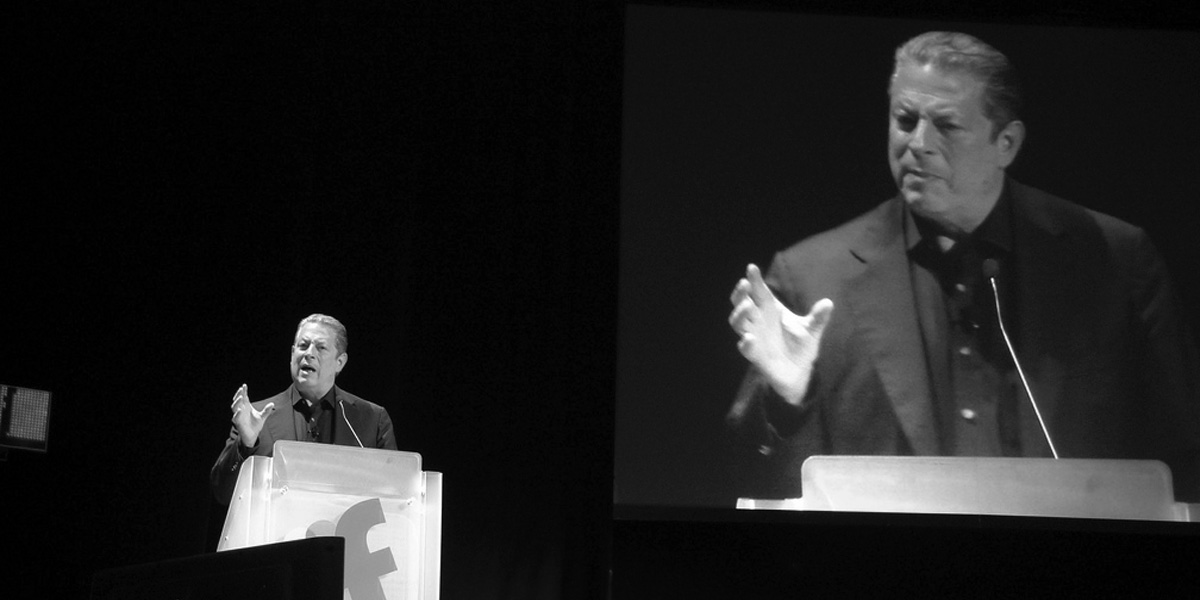Five of the best environment speeches
For those who attended this week's Green Growth conference at the Trade Unions Congress (TUC) a rare treat was on offer. Among the useful and insightful presentations by scientists explaining the latest data trends was an inspirational speech given by John...
For those who attended this week’s Green Growth conference at the Trade Unions Congress (TUC) a rare treat was on offer. Among the useful and insightful presentations by scientists explaining the latest data trends was an inspirational speech given by John Ashton, a former diplomat who until last year was the special representative for climate change at the foreign office.
Ashton made one of the best environment speeches I’ve ever heard. He didn’t mention climate change till about the 75th paragraph. The ability to situate our environmental challenge in a wider debate about the kind of society and economy we want is one of the most effective things an environmental speech can do. With that in mind I reflected on some of the other great speeches I’ve heard on green issues. So, in chronological order:
1. Al Gore, 2006
The obvious but still worth mentioning one is Al Gore’s speech immortalised in ‘An Inconvenient Truth’ (2006). It may be quite dated now but it’s not often that footage of a politician giving a power point presentation is made into a movie This was the speech that first alerted me to the importance of the environmental crisis facing the planet.
2. Ed Miliband, 2009
While I was still studying my postgraduate degree in 2009 I remember hearing this speech on the LSE podcast service. The speech was about the politics of climate change but featured a coherent argument in favour of what then was referred to as ‘the politics of the common good’ but what we now call ‘one nation labour’. It’s powerful to read it now and recognise the coherence of the Miliband project even then.
It’s worth noting that what the speech says about energy bills is consistent with the debate we’re currently having in the context of the price freeze. On the one hand Miliband states that prices will rise but the speech is clear that this means that the market will have to function as fairly as possible. This is a useful reminder that the price freeze policy has to be understood side by side with Labour’s plans for reforming the energy markets including a new regulator and splitting generation from supply.
3. Lord Deben, 2013
Earlier this year I was honoured to speak on the same platform as Lord Deben at the Joseph Rowntree Foundation’s climate justice conference. Lord Deben got up and talked about his maiden speech in the House of Lords. He said “I’m here to talk about the need to reduce poverty, fight climate change and the importance of Europe.”
It was a fine speech that challenged climate sceptics and argued that solving the environmental crisis requires a cross-party consensus. Lord Deben rarely speaks from pre-written speeches, but to get a flavour here’s an article he wrote for a Fabian collection on tackling climate change.
4. Ed Balls, 2013
This was a major speech because it was the first one in the 2010 parliament that demonstrated Labour really ‘got’ environmental issues. It was given to the Green Alliance annual reception and featured a host of green policy commitments including a 2030 energy sector decarbonisation target and a pledge to give the Green Investment Bank (GIB) power to borrow on the open market.
In the speech Ed Balls illustrated that under Labour the global race would be one fought on terms of cooperation with friends abroad, not just a competition to build more. This was an argument expanded by Ed Miliband at this year’s Labour conference. In the context of green issues it is absolutely right to argue that we cannot build as much as China but we can build it smarter. We can then export that kind of expertise.
5. John Ashton, 2013
Ashton’s speech began with a touching story about his family background and the injustices they faced in the time of his grandfather who was blacklisted during the great depression. The speech then describes in detail and with passion the myriad challenges facing the economy and politics. It is because the climate crisis cannot be separated from the wider cost of living crisis and the lack of faith in politics that Ashton’s speech is so resonant. It’s an argument he makes brilliantly and a throughline that features in of all the speeches I’ve set out above.
Those who see the environmental challenge in a silo misunderstand the basic truth: without the environment there can be no real economy or politics to speak of. Indeed, the top four news stories on the BBC yesterday at one point were a new nuclear power plant deal, forest fires in Australia, energy price increases and food waste from Tesco. All four deeply political and deeply environmental. Looking back at these speeches, who can really say green issues are marginal?
